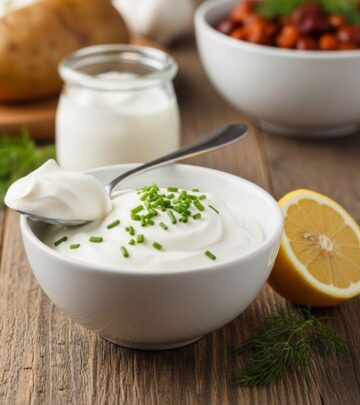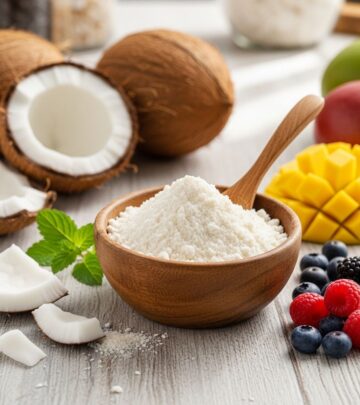Duck Egg Nutrition: Complete Guide to Benefits, Uses, and Risks
Their richer flavor delivers extra protein and healthy fats to elevate everyday meals.

Duck eggs are gaining popularity among food enthusiasts and health-conscious individuals, celebrated for their rich flavor and stunning nutritional profile. From bodybuilders to gourmet chefs, more people are discovering the unique advantages duck eggs offer over traditional chicken eggs. This article dives deep into the nutrients, health benefits, culinary uses, risks, and frequently asked questions about duck eggs, ensuring you have a thorough understanding before adding them to your diet.
Table of Contents
- Duck Egg Nutritional Content
- Health Benefits of Duck Eggs
- Duck Eggs vs. Chicken Eggs
- Culinary Uses and Cooking Tips
- Risks and Considerations
- Frequently Asked Questions (FAQs)
Duck Egg Nutritional Content
Duck eggs are not only larger than chicken eggs, but they also feature a concentrated array of essential nutrients. Here is a breakdown of the nutritional value found in an average duck egg (approximately 70 grams):
- Calories: 130–185 kcal
- Protein: 9–13 grams
- Fat: 10–14 grams
- Carbohydrates: 1 gram
- Cholesterol: 295% of Daily Value (DV)
- Vitamin B12: Up to 168% of DV
- Vitamin A: Up to 50% more than chicken eggs
- Vitamin D: Higher than chicken eggs
- Selenium, Iron, and Other Minerals: Present in significant amounts
- Choline: 263 mg per 100g serving
- Omega-3 Fatty Acids: 100 mg per egg (much higher than chicken eggs)
- All 8 Essential Amino Acids: Including isoleucine, leucine, lysine, methionine, phenylalanine, threonine, tryptophan, and valine
| Nutrition | Duck Egg | Chicken Egg |
|---|---|---|
| Calories | 185–223 | 148–149 |
| Protein | 12–13g | 10–12g |
| Fat | 14–18.5g | 10–11g |
| Cholesterol | 276–295% DV | 92–141% DV |
| Vitamin B12 | 90–168% DV | 23–32% DV |
| Vitamin A | Up to 50% more | — |
| Selenium | 52–62% DV | 43–45% DV |
| Iron | 20–21% DV | 7–10% DV |
| Choline | 263mg | 251mg |
Duck eggs are notably high in omega-3 fatty acids, essential for brain health and inflammation reduction, and contain more antioxidants than chicken eggs, thanks to their dark yellow yolks.
Micronutrients in Duck Eggs
- Vitamin D: Supports immune function and bone health
- Vitamin B12: Essential for red blood cell production and nervous system health
- Iron: Supports oxygen transport and energy metabolism
- Selenium: Powerful antioxidant that boosts immune defense
- Choline: Important for liver function and brain development
Health Benefits of Duck Eggs
Because of their unique nutritional profile, duck eggs offer several health benefits:
- Supports Muscle Growth and Repair: The high protein content is ideal for athletes, bodybuilders, and those on keto or paleo diets.
- Heart and Brain Health: Rich in omega-3 fatty acids and choline, duck eggs may help support heart health and cognitive function.
- Boosts Energy and Immunity: B vitamins such as B12 and B6, together with iron and selenium, enhance energy metabolism and support the immune system.
- Promotes Eye and Skin Health: Abundant vitamin A content contributes to healthy eyes and skin. Antioxidants in the yolk also help combat oxidative stress and skin aging.
- Bone and Joint Support: The vitamin D and other minerals found in duck eggs contribute to strong bones and joints.
- Mental Health Benefits: Some studies associate adequate omega-3 and B12 intake with reduced symptoms of depression, anxiety, and ADHD in children.
- Anti-Inflammatory Properties: The presence of bioactive peptides and antioxidants helps in reducing inflammation in the body.
Duck Eggs vs. Chicken Eggs
Duck eggs and chicken eggs are staples in many kitchens, but their nutritional and culinary characteristics differ. Here’s a detailed comparison:
| Aspect | Duck Eggs | Chicken Eggs |
|---|---|---|
| Size | Larger (70g or more) | Smaller (50g average) |
| Protein | Higher (7–9g per egg) | Lower (6–7g per egg) |
| Fat | Higher | Lower |
| Omega-3 | 100mg | 37mg |
| Vitamin B12 | 90–168% DV | 23–32% DV |
| Cholesterol | Much higher | Lower |
| Selenium, Iron, Vitamin D | Generally higher | Lower |
| Antioxidants (Yolk) | Richer (darker yolk) | Lighter |
| Flavor | Richer, more intense | Milder |
| Allergenic Proteins | Different; may be an alternative for some with chicken egg allergies | Common allergen |
| Cooking Applications | Baking (richer, fluffier results), gourmet cooking | Everyday use |
Summary
- Duck eggs outperform chicken eggs in protein, fat, omega-3s, most minerals, and certain vitamins.
- They have a larger yolk-to-white ratio, delivering more nutrients per egg.
- Duck eggs may be suitable for some individuals allergic to chicken eggs, given the different protein profile.
Culinary Uses and Cooking Tips
Duck eggs are favored by professional chefs and home cooks alike due to their rich taste and unique baking properties:
- Richer Flavor: Their larger yolks create a creamier, more intense flavor, ideal for desserts, quiches, and custards.
- Baking Benefits: Higher protein and fat create fluffier cakes and more tender baked goods.
- Substitution Tips: When replacing chicken eggs with duck eggs in recipes, use approximately one duck egg in place of one and a half chicken eggs (by weight). Weighing helps ensure recipe consistency, since duck eggs are larger.
- Popular Uses: Duck eggs are excellent for omelets, scrambled eggs, custards, sauces, flans, and baking pastries such as macarons and pound cakes.
How to Cook Duck Eggs
- Hard boil them for salads and lunchboxes.
- Fry or scramble as you would chicken eggs but note the slightly longer cooking time.
- Use for gourmet recipes where a deeper flavor is desired.
Storage and Handling Tips
- Duck eggs have a thicker shell and membrane, often giving them a longer shelf life than chicken eggs when stored properly.
- Always wash eggs before use to reduce the risk of contamination.
- Store in the refrigerator for optimal freshness.
Risks and Considerations
While duck eggs are nutritious, it’s important to be aware of certain considerations before eating them regularly:
- Allergies: Although rare, some people may be allergic to duck eggs. However, individuals allergic to chicken eggs sometimes tolerate duck eggs due to different proteins.
- Cholesterol Content: Duck eggs are significantly higher in cholesterol than chicken eggs, making it advisable for those with cardiovascular conditions or diabetes to monitor or limit their intake. Most experts recommend limiting yolks to three per week if you have existing heart or cholesterol issues.
- Caloric Density: Because of their size and fat content, duck eggs are higher in calories. This is a benefit for those needing more energy or on high-protein diets, but may require portion control for others.
- Food Safety: Duck eggs, like all eggs, should be properly cooked to avoid the risk of Salmonella or other bacterial infections.
- Availability: Duck eggs are less common than chicken eggs and may cost more or be harder to find in mainstream grocery stores.
Frequently Asked Questions (FAQs)
Are duck eggs healthier than chicken eggs?
Duck eggs contain more protein, omega-3 fatty acids, vitamin B12, and other essential nutrients than chicken eggs. They may be considered a healthier choice for those needing more nutrients, but their higher cholesterol content means moderation is important, especially for those with heart concerns.
Can people with chicken egg allergies eat duck eggs?
Some people allergic to chicken eggs find they can tolerate duck eggs due to the different protein structure, but this is not guaranteed. Anyone with egg allergies should consult a healthcare provider before trying duck eggs.
Are duck eggs safe to eat raw?
As with all eggs, eating duck eggs raw carries a risk of foodborne illness. It is safest to consume them fully cooked to reduce risk of Salmonella and other pathogens.
Do duck eggs taste different from chicken eggs?
Yes, duck eggs have a richer flavor and creamier texture due to a higher yolk-to-white ratio and higher fat content. Some describe the taste as more “eggy” or intense, which works well in baking and gourmet dishes.
How should duck eggs be stored?
Store duck eggs in the refrigerator. Their thicker shells help preserve freshness, but they should still be consumed within a few weeks. Always wash eggs before using to lower contamination risk.
Are duck eggs suitable for people on special diets?
Duck eggs are popular with those following keto, paleo, and high-protein diets due to their higher protein, fat, and micronutrient content compared to chicken eggs.
Key Takeaways
- Duck eggs offer more protein, vitamins, minerals, and omega-3 fats than chicken eggs.
- They are valued for their richer flavor and superior baking qualities.
- Their higher cholesterol content makes moderation especially important for those with heart concerns.
- Duck eggs may be an option for some with chicken egg allergies, but medical advice is strongly recommended.
- Always cook duck eggs thoroughly and store them properly for safety.
References
- https://utopihenfarms.com/duck-eggs-vs-chicken-eggs/
- https://www.healthline.com/nutrition/duck-eggs
- https://www.healthline.com/nutrition/duck-eggs-vs-chicken-eggs
- https://www.webmd.com/diet/health-benefits-duck-eggs
- https://grubblyfarms.com/blogs/the-flyer/comparing-chicken-eggs-vs-duck-eggs-everything-you-need-to-know
- https://pmc.ncbi.nlm.nih.gov/articles/PMC4597835/
Read full bio of Sneha Tete













